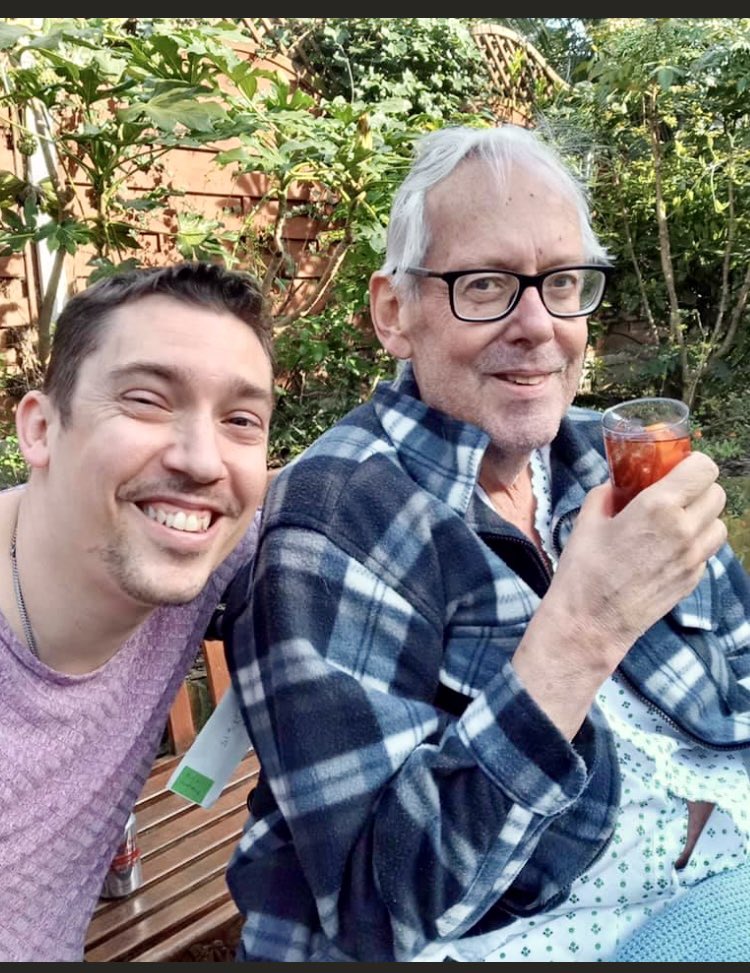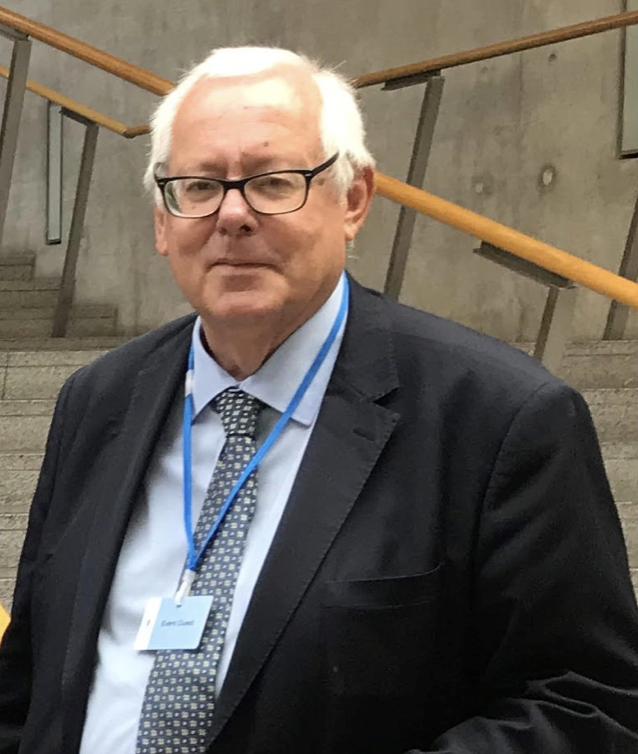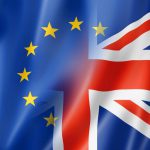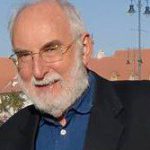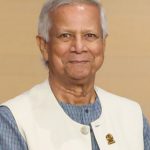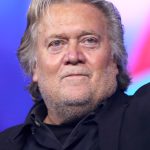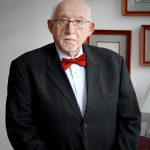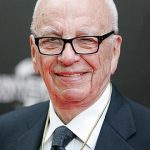From AEJ UK Chairman William Horsley:
As Jonathan lay in bed in the hospice in London’s East End where he would end his days, he announced simply on social media: “Brain tumour. Incurable. Dying soon here at St. Joseph’s Hospice, Hackney, Goodbye, everyone, and thank you. Jonathan.”
I first met Jonathan 50 years ago in Oxford, where we were both undergraduates doing Oriental Studies. We became friends, though not especially close. He struck me from the first encounter as an extraordinary individual, because he was then almost painfully shy but also unusually intelligent. He was also, as I discovered later, extremely driven. Driven by ambition, yes, but also by a rare determination to embrace and even be possessed by the beliefs and causes that he made his own.
He was fanatical about learning complex and difficult things — including, as a student, both Chinese and Japanese. He was an ardent, heart-and-soul Liberal, and much later he came close to achieving his life’s ambition of being elected as a member of the European Parliament for the Liberal (later the Liberal Democratic) Party.
His other passion – obsession might be a more accurate word for it – was the “European project”. He died knowing that, despite his endeavours, Britain had, as he saw it, betrayed itself by voting in 2016 to leave the European Union; and then, after several agonising years, actually “doing” Brexit.
But there was much more to his special zeal. It stemmed from the trauma of his childhood, in the years before I met him in the Oriental Institute in Oxford.
Jonathan plunged into a professional journalistic career. He had given himself a head start by going on his own initiative to Vietnam during his pre-university “gap year” and getting his first bylines in various publications as a “special correspondent” reporting on the Vietnam war.
Our paths hardly crossed for the next 30 years. I spent much of the 1970s and ‘80s reporting for the BBC from Japan, China and the rest of East Asia, while Jonathan was started out based in Brussels — at first with Reuters and then as a freelance journalist roving far and wide, including to the Middle East and Africa. During the 1990s, while I worked for the BBC from Bonn, Brussels and all over Europe, Jonathan was living in London, writing, broadcasting and teaching, while keeping up his ceaseless explorations of the Arab world and beyond.
In the new millennium I met Jonathan regularly as BBC colleague in London, and at AEJ professional lunch meetings here with many influential public figures.
Jonathan was in high demand from international media. His expertise included large areas of the globe: East Asia, the Middle East and Latin America as well as Europe.
And Jonathan the chameleon showed his talent for taking on new identities when for ten years he was Honorary Consul for the Islamic Republic of Mauritania in the UK. He wrote in his blog: “As a writer and broadcaster on the Middle East and North Africa I find diplomatic gatherings invaluable for picking up information and making contacts”
It was not until 2020 that I read Jonathan’s poignant autobiographical book about his early years. It was a revelation. He wrote with devastating honestly about how he was routinely abused by his adoptive father in the north of England.
For such an intelligent and sensitive teenager, the experience was traumatic and life-changing. He wrote that after those years of abuse in a petty bourgeois home in the town of Eccles, near Manchester, his “only dream was to get away as far as possible.” It may also have been a powerful motivation for him to choose the exotic and self-reliant life of a foreign correspondent.
Jonathan showed courage and integrity by writing and speaking publicly about those years of his life. The book, Eccles Cakes: An Odd Tale of Survival, was published in 2016. Reading it helped me to understand part of what drove Jonathan to such intense commitments to causes, including the European ideal and human rights in Turkey; and his insatiable desire to know, understand and make connections with people in every part of the globe.
Although I do not count myself as a close friend, I tried to express my admiration for him and his life’s achievements in a message that I sent him in the hospice.
It said: “I read your Eccles boy book a few months ago… It helps me understand the strength of your convictions and sense of destiny about liberal values, and your hatred of ignorance, selfishness and cruelty in all its forms.”
The Guardian
The Telegraph
Wikipedia entry
Jonathan Fryer blog
From David Worsfold, AEJ UK Treasurer:
Jonathan lived many lives and he excelled at all of them: politician, author, journalist, Quaker, friend.
Above all he was a great friend. He touched so many people’s lives with his kindness and simple humanity. He always sought the good in everyone, anger being an emotion that only rarely broke through before quickly evaporating.
This does not mean he was not tough. He had to be given his early life vividly recounted in the self-published autobiography Eccles Cakes: An Odd Tale of Survival.
Courage. That is the word that kept recurring in my mind as I read this powerful insight into Jonathan’s troubled childhood. Courage in writing it. Courage in dealing with the abuse he suffered. Courage in throwing himself into the chaos and danger of a war zone on his own resources at the age of 19.
It is a shocking story but often also a heart-warming one as it shows how he triumphed over everything that was thrown at him. He never hid the grim reality of his life at home but skilfully managed to avoid excessive self-pity by restricting it to the occasional flashback insight into his feelings at the time.
What a shame we shall now never read the second volume of his autobiography. Jonathan started writing this but set it aside last year as he secured a commission for another book.
He was a prolific author, bringing a wide variety of subjects to life, and always full of helpful advice for other authors. His fifteen or so books covered a diverse range, from Oscar Wilde, Soho in the Fifties and Sixties to international affairs, reflecting Jonathan’s many deep interests and passions.
It was as a politician that I knew him best.
He had been a Young Liberal since 1964 when he heard Jo Grimond at his inspirational best at school – and was chairman of the Liberal Club when he was at Oxford University – but it was when he returned to London from Brussels in the early 1980s that our paths rapidly converged.
He threw himself in London Liberal politics, standing for Parliament in Chelsea in 1983 and in the once Liberal-held seat of Orpington in 1987 where he also served as councillor on the London Borough of Bromley.
For four years I was his campaign manager and agent in Leyton which he fought in 1992. He gave it everything, as he always did. His brilliance with languages meant he mastered Urdu within months of being adopted to fight Leyton with its large Asian population. When I expressed my amazement, he told me that after the first five languages learning a new one was easy, a very rare moment of boastfulness.
He fought two more General Elections in 2010 and 2017.
While I believe he would have made a very fine MP, his real passion was Europe and he dearly wanted to be an MEP. I did once tell him that Westminster would benefit from his insights into foreign affairs and the media more than the EU where he would be preaching to the converted: he was not convinced. He fought every European Parliament election from the first one in 1979, coming within 0.6% of winning a seat in 2004 and being fourth on the party’s London list in 2019 when the Liberal Democrats won three seats in the capital. Brexit was a cruel personal blow to this cherished ambition.
He was a consummate internationalist, as well as Liberal to his core. He held various positions in European and international organisations and was a trusted adviser on foreign affairs to several Liberal Democrat leaders, especially Paddy Ashdown.
He rarely, if ever, flaunted his many friendships with the great and the good of Liberal and Liberal Democrat politics, the media or literary circles. It was easy to be taken by surprise by the extent of friendships, as I was on more than one occasion.
He never allowed his own difficult childhood to reflect on his enjoyment of the family life of others. He was always happy to be invited to family occasions and see young children running around his house at his Christmas parties.
We should not overlook his religious faith as that also sat deep within his character. He was active within the Religious Society of Friends (The Quakers), he was one of the small group that in 1979 set up the Quaker House in Brussels. His contributions to Radio 4’s Thought for the Day were always accessible and enlightening.
The final, smiling picture of Jonathan taken on Easter Sunday, less than two weeks before he died, with his friend Adrian Hyyrylainen-Trett drinking a Campari Negroni in the garden of the hospice in Hackney, shows a man at peace with himself. May he Rest in Peace and, as he believed, Rise in Glory.
